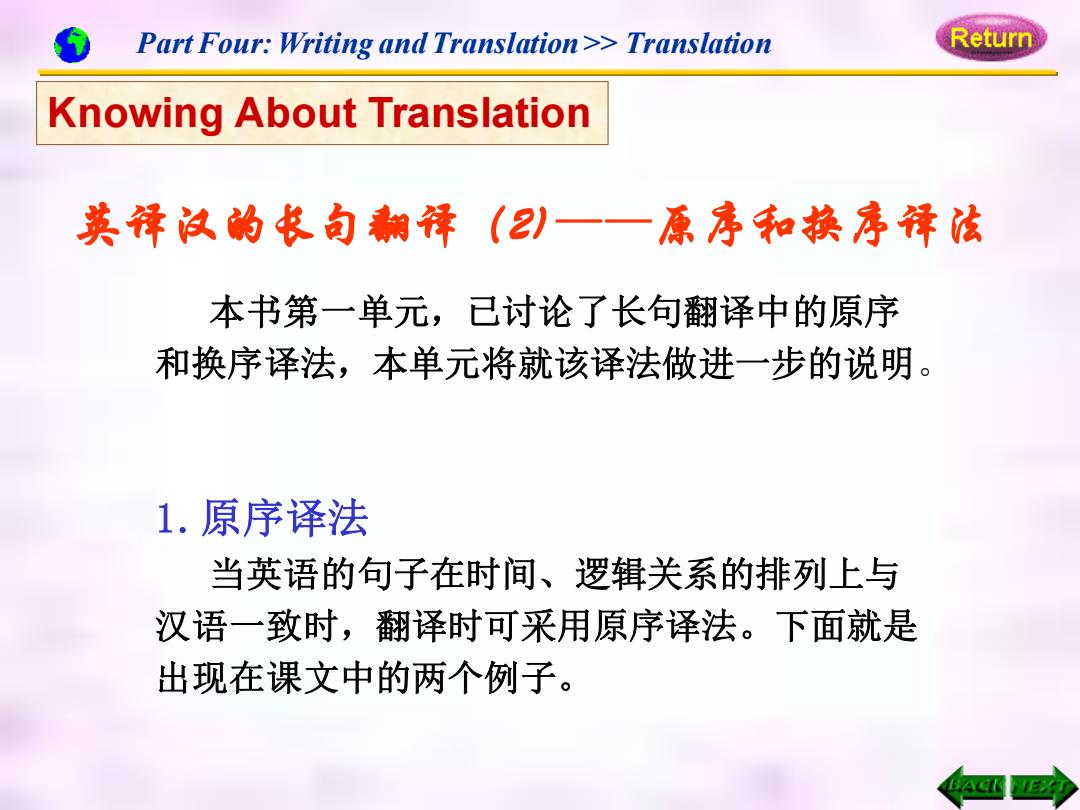
Part Four:Writing and Translation>>Translation Return Knowing About Translation 英泽议的长句渊律(2)一一原序和换序律法 本书第一单元,已讨论了长句翻译中的原序 和换序译法,本单元将就该译法做进一步的说明。 1.原序译法 当英语的句子在时间、逻辑关系的排列上与 汉语一致时,翻译时可采用原序译法。下面就是 出现在课文中的两个例子
Part Four: Writing and Translation >> Translation 英译汉的长句翻译(2) ——原序和换序译法 本书第一单元,已讨论了长句翻译中的原序 和换序译法,本单元将就该译法做进一步的说明。 1.原序译法 当英语的句子在时间、逻辑关系的排列上与 汉语一致时,翻译时可采用原序译法。下面就是 出现在课文中的两个例子。 Knowing About Translation
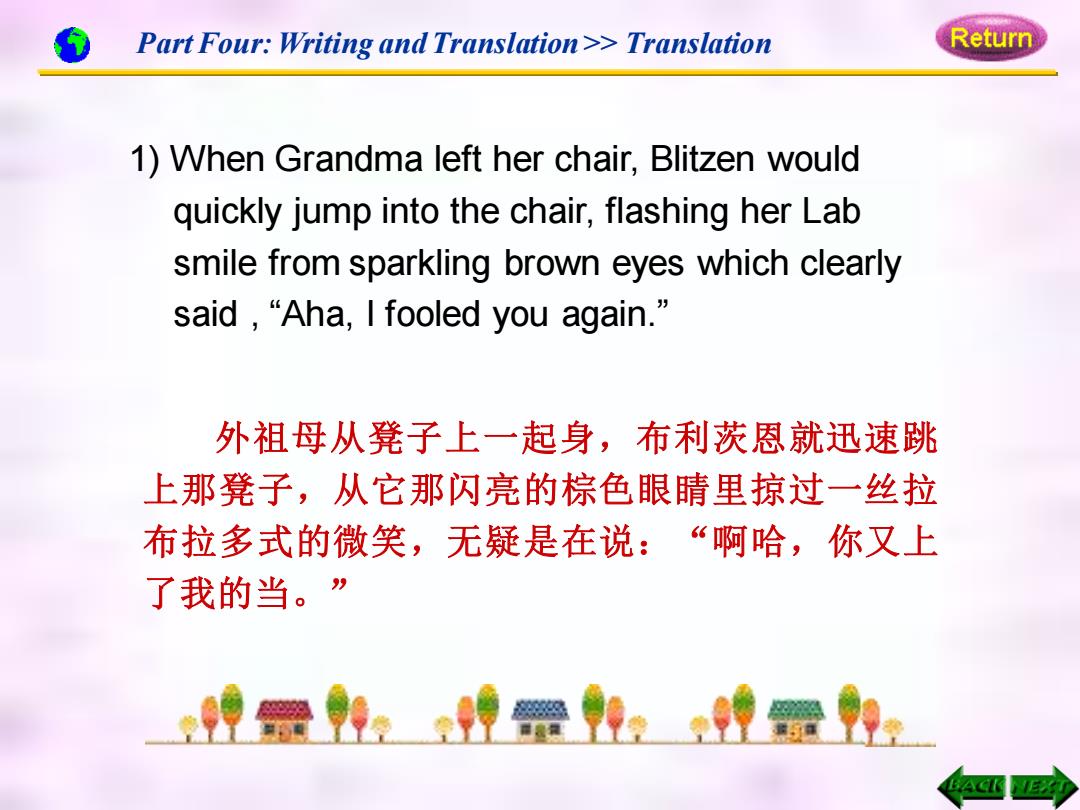
Part Four:Writing and Translation>>Translation Return 1)When Grandma left her chair,Blitzen would quickly jump into the chair,flashing her Lab smile from sparkling brown eyes which clearly said,“Aha,I fooled you again.” 外祖母从凳子上一起身,布利茨恩就迅速跳 上那凳子,从它那闪亮的棕色眼睛里掠过一丝拉 布拉多式的微笑,无疑是在说:“啊哈,你又上 了我的当
Part Four: Writing and Translation >> Translation 1) When Grandma left her chair, Blitzen would quickly jump into the chair, flashing her Lab smile from sparkling brown eyes which clearly said , “Aha, I fooled you again.” 外祖母从凳子上一起身,布利茨恩就迅速跳 上那凳子,从它那闪亮的棕色眼睛里掠过一丝拉 布拉多式的微笑,无疑是在说:“啊哈,你又上 了我的当。
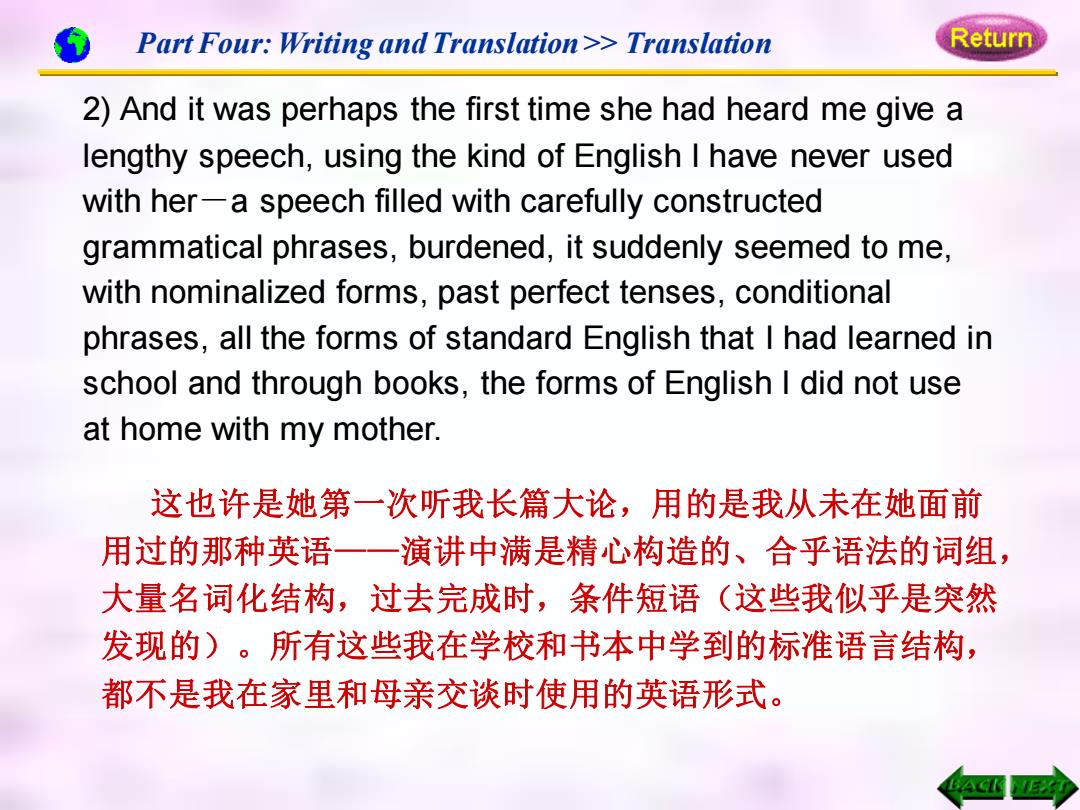
Part Four:Writing and Translation >Translation Return 2)And it was perhaps the first time she had heard me give a lengthy speech,using the kind of English I have never used with her-a speech filled with carefully constructed grammatical phrases,burdened,it suddenly seemed to me, with nominalized forms,past perfect tenses,conditional phrases,all the forms of standard English that I had learned in school and through books,the forms of English I did not use at home with my mother. 这也许是她第一次听我长篇大论,用的是我从未在她面前 用过的那种英语一一演讲中满是精心构造的、合乎语法的词组, 大量名词化结构,过去完成时,条件短语(这些我似乎是突然 发现的)。所有这些我在学校和书本中学到的标准语言结构, 都不是我在家里和母亲交谈时使用的英语形式
Part Four: Writing and Translation >> Translation 2) And it was perhaps the first time she had heard me give a lengthy speech, using the kind of English I have never used with her-a speech filled with carefully constructed grammatical phrases, burdened, it suddenly seemed to me, with nominalized forms, past perfect tenses, conditional phrases, all the forms of standard English that I had learned in school and through books, the forms of English I did not use at home with my mother. 这也许是她第一次听我长篇大论,用的是我从未在她面前 用过的那种英语——演讲中满是精心构造的、合乎语法的词组, 大量名词化结构,过去完成时,条件短语(这些我似乎是突然 发现的)。所有这些我在学校和书本中学到的标准语言结构, 都不是我在家里和母亲交谈时使用的英语形式
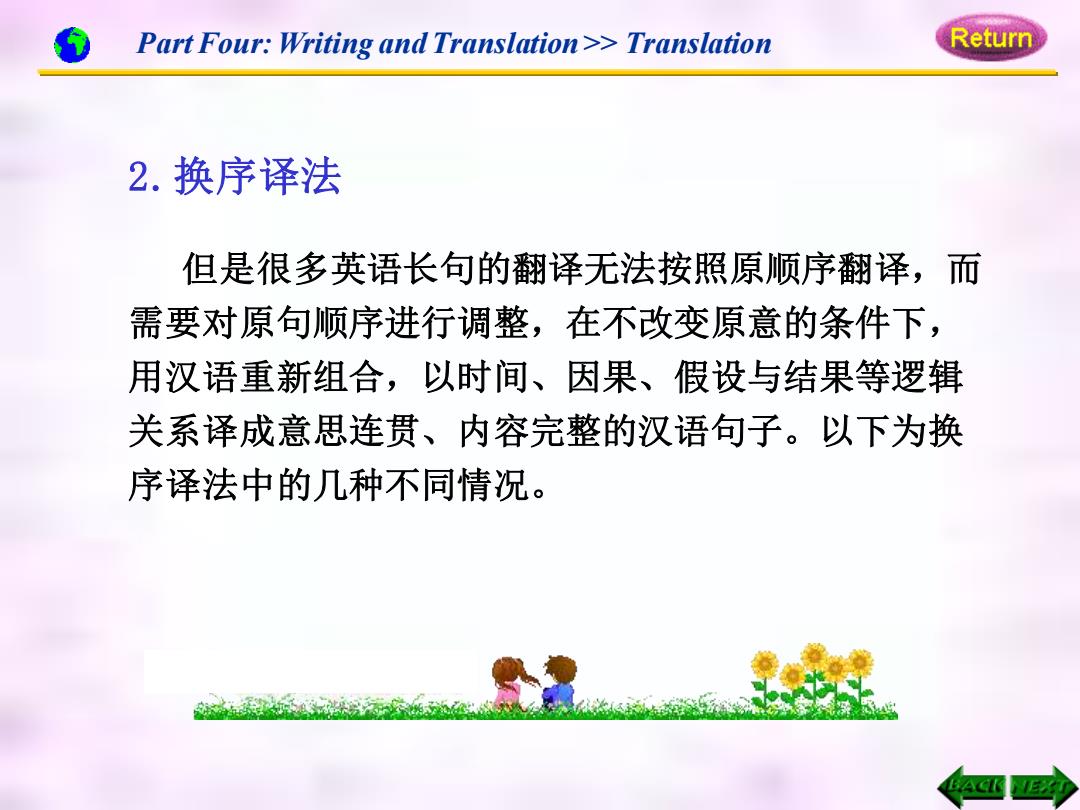
Part Four:Writing and Translation >Translation Return 2.换序译法 但是很多英语长句的翻译无法按照原顺序翻译,而 需要对原句顺序进行调整,在不改变原意的条件下, 用汉语重新组合,以时间、因果、假设与结果等逻辑 关系译成意思连贯、内容完整的汉语句子。以下为换 序译法中的几种不同情况
Part Four: Writing and Translation >> Translation 但是很多英语长句的翻译无法按照原顺序翻译,而 需要对原句顺序进行调整,在不改变原意的条件下, 用汉语重新组合,以时间、因果、假设与结果等逻辑 关系译成意思连贯、内容完整的汉语句子。以下为换 序译法中的几种不同情况。 2.换序译法
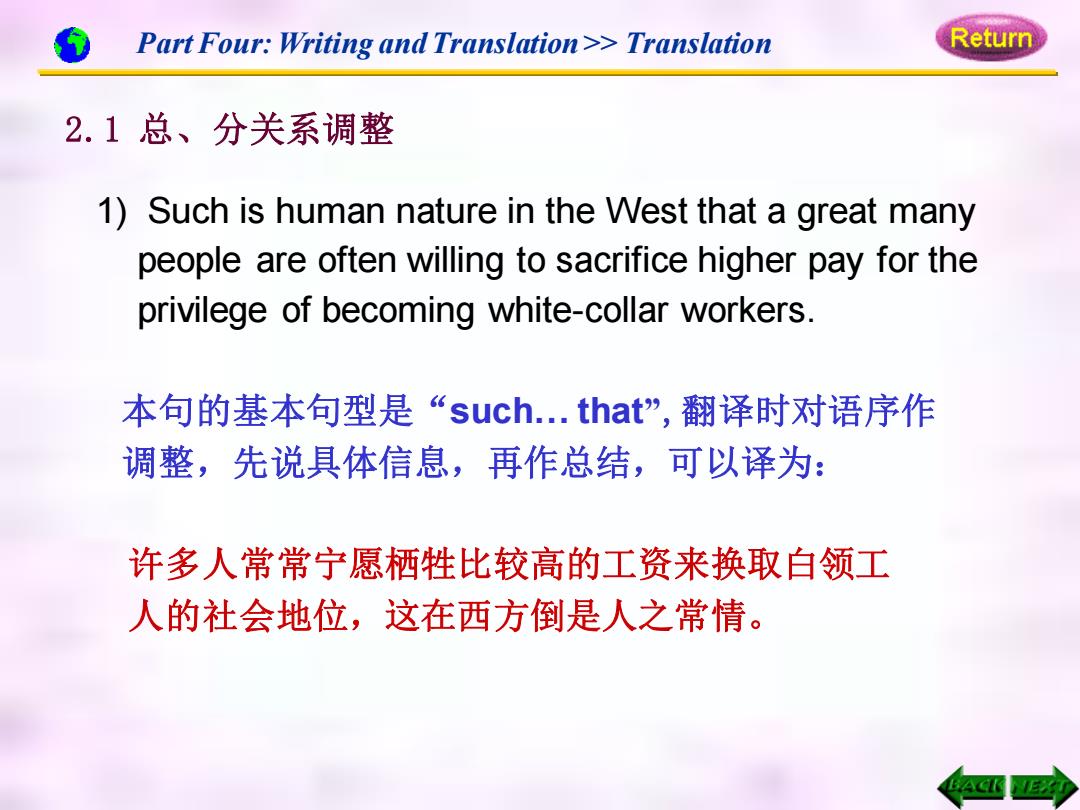
Part Four:Writing and Translation >Translation Return 2.1总、分关系调整 1)Such is human nature in the West that a great many people are often willing to sacrifice higher pay for the privilege of becoming white-collar workers. 本句的基本句型是“such..that”,翻译时对语序作 调整,先说具体信息,再作总结,可以译为: 许多人常常宁愿栖牲比较高的工资来换取白领工 人的社会地位,这在西方倒是人之常情
Part Four: Writing and Translation >> Translation 1) Such is human nature in the West that a great many people are often willing to sacrifice higher pay for the privilege of becoming white-collar workers. 2.1 总、分关系调整 本句的基本句型是“such… that” ,翻译时对语序作 调整,先说具体信息,再作总结,可以译为: 许多人常常宁愿栖牲比较高的工资来换取白领工 人的社会地位,这在西方倒是人之常情